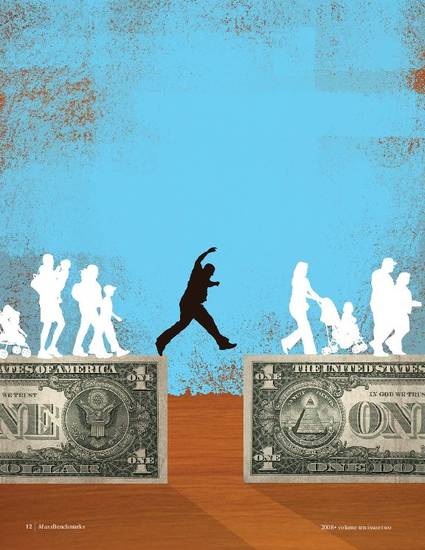
Article
Bridging the Gaps Between Earnings and Basic Needs in Massachusetts
Economics Faculty Publication Series
Document Type
Article
Publication Date
1-1-2008
Disciplines
Abstract
In the United States, it is generally assumed that people who hold a steady job are able to make ends meet. But, in today’s labor market, where nearly a quarter of jobs pay low wages and do not offer benefi ts such as health insurance and retirement plans, this could not be further from the truth for millions of workers and their families. In fact, most workers do not make ends meet on their wages alone. Even upper- and moderate-wage workers are not “self-suffi cient” in a literal sense, as most receive onthe-job benefi ts, such as employer-provided health insurance or paid sick days, and are eligible for unemployment or disability insurance if they need it.
Community Engaged/Serving
No, this is not community-engaged.
Publisher
University of Massachusetts Donahue Institute
Citation Information
Albelda, Randy and Shea, Jennifer, "Bridging the Gaps Between Earnings and Basic Needs in Massachusetts" (2008). MassBenchmarks. Vol. 10, No. 2, pp. 13-19: http://scholarworks.umb.edu/econ_faculty_pubs/17

Published in MassBenchmarks, Vol. 10, No. 2, pp. 13-19: http://www.massbenchmarks.org/publications/issues/vol10i2/4.pdf.
This article is based on a report by the same name as part of a multi-state project. The report and more information about the project can be found at http://scholarworks.umb.edu/csp_pubs/37/.